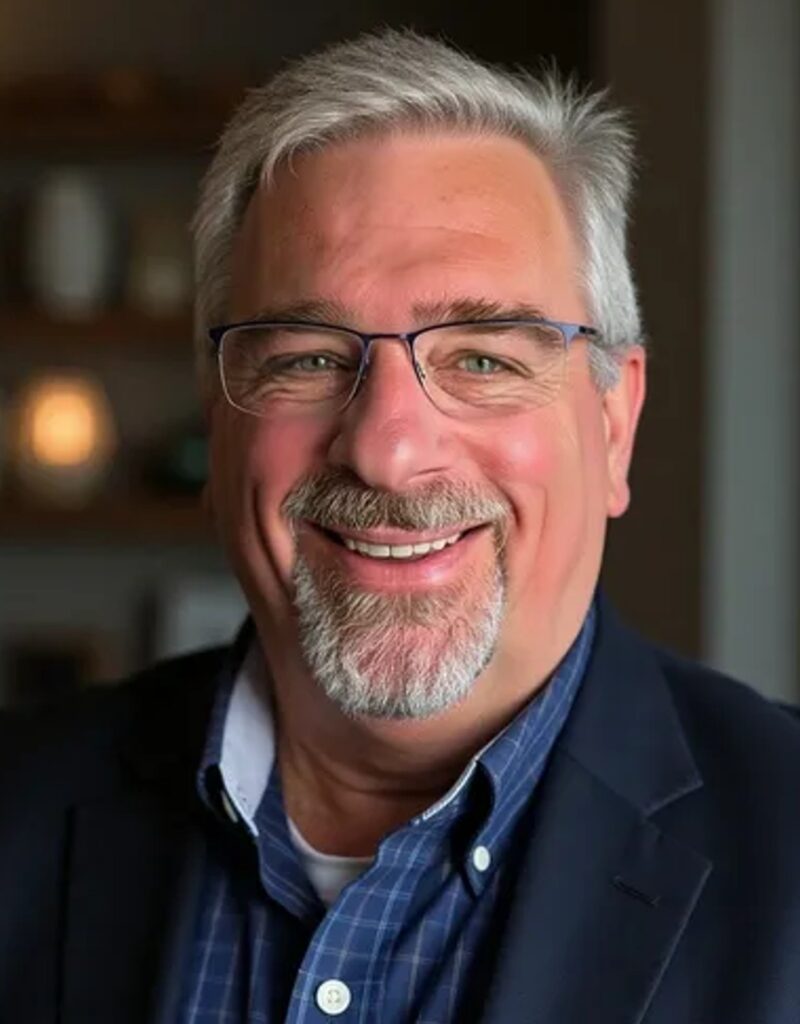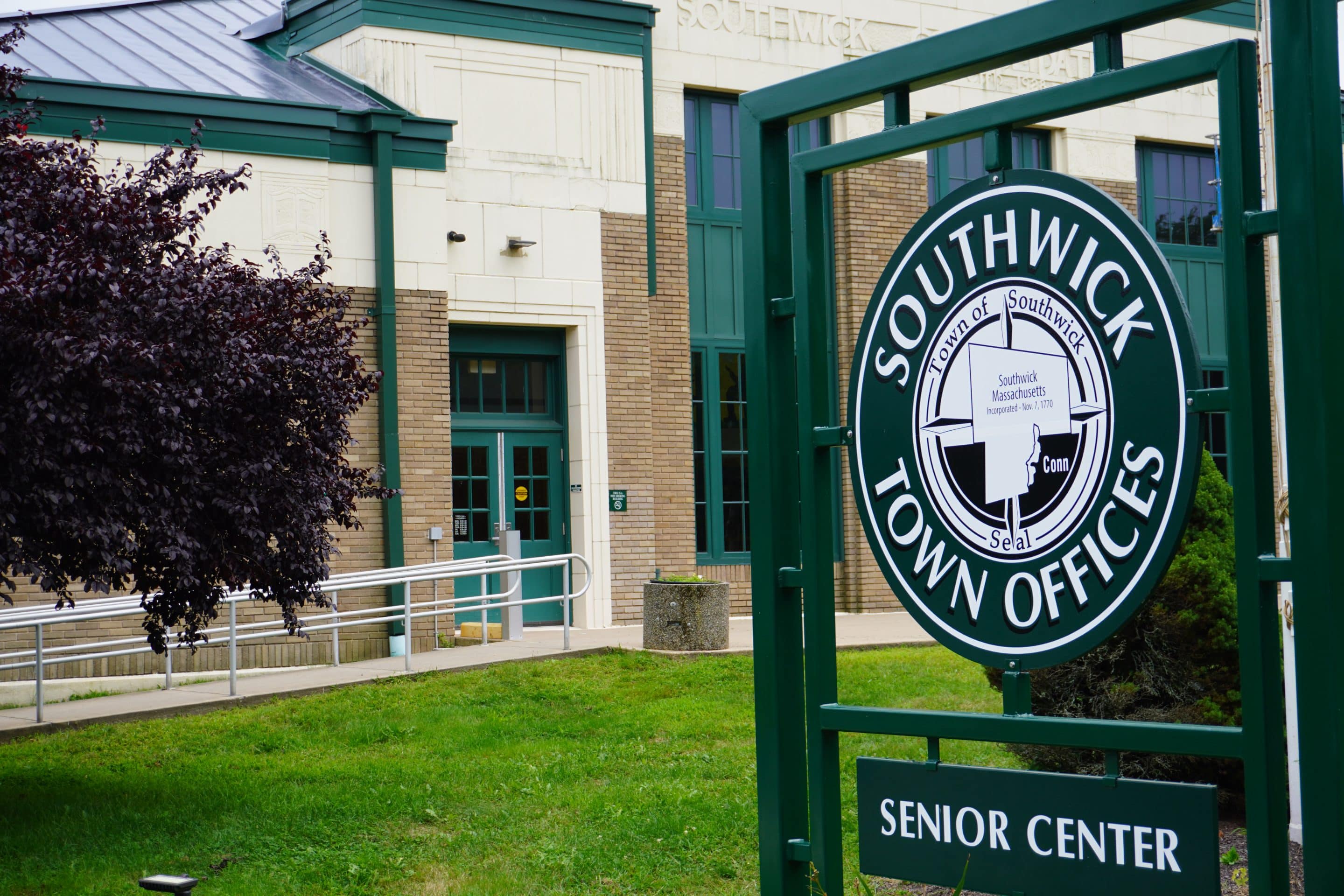
Reminder Publishing submitted photo

Reminder Publishing submitted photo
SOUTHWICK — On Tuesday, May 13, voters will head to the polls to decide which of two men running for the open seat on the Select Board will serve for the next three years.
Current board member Jason Perron initially threw his hat into the ring but withdrew his name from consideration leaving John Cain and Russell Anderson vying for the seat.
Reminder Publishing developed several questions on issues important to town residents and asked the candidates to offer their views on each. The responses have been lightly edited for punctuation, grammar and brevity.
Why are you running?
Anderson: As many know, I’ve dedicated much of my life to community service — 41 years in the fire service, where I continue to support professional development. Southwick has grown into a desirable community since I graduated from Southwick High School 50 years ago. It’s no longer a one-traffic-light town. As we grow, we must preserve our rural charm while managing responsible development. Achieving this requires a delicate balance and smart financial planning. My experience managing budgets, grants, and employees across two communities gives me a fresh perspective and the skills necessary to help move Southwick forward.
Cain: The town of Southwick has been my lifelong home and I feel a strong connection to this community. Having been an elected official for the past five years has given me a great insight into the workings of our town government. I believe we need fresh energy, new ideas, and the people to see the job through. Our town is facing major long-term decisions in the municipal fiber, potential roadway overhaul, and the master plan that was recently developed. I know I have the energy and ideas to develop the next generation of Southwick and to unite our community on tough issues. As a member of the Select Board I will bring my knowledge of infrastructure, experience in business, and work on behalf of the taxpayer to ensure our money is being utilized efficiently and effectively. I will bring solutions to keep our town safe, affordable and united.
Is there any action or decision the current Select Board has recently made that you would have done differently?
Anderson: It wouldn’t be fair to second-guess decisions without all the facts. However, I believe the budgeting process, while well-intentioned, is flawed. Typically, town administration provides guidance — such as requesting a 5% cut, level funding, or a 3% increase — and department heads build their budgets from there. In our current model, the board makes minor cuts of $100–$200 without input from department heads, which has little actual impact and leaves departments operating in a vacuum.
Cain: Recently the Select Board decided to utilize an outside search firm, at the cost of $18,000, to look for a new head assessor. As a member of the Board of Assessors I was upset that our suggestion was dismissed for developing one of our current town employees into that role. I strongly support promoting from within and hiring to fill the vacancy. Using a consultant means the assessor’s salary will be much higher than the current assessor’s salary, and the town may still have to pay for their training and certifications. Hiring, developing and retaining employees with a connection to the community and a desire to be part of it should be at the forefront of the employment process.
Do you support the bylaw proposal drafted by Select Board member Diane Gale using input from the North Pond Task Force to regulate activities on town-owned property?
Anderson: I need to learn more about the proposal, as I wasn’t part of the earlier discussions. In general, I support having clear guidelines to protect town property and give law enforcement the tools they need to act in the town’s best interest. That said, a one-size-fits-all bylaw may not work. Natural areas, parks, and buildings each have unique needs, so any bylaw should allow for some flexibility.
Cain: After the fight that broke out last summer at the North Pond Conservation Area it is clear that we have the potential for a major problem. I support giving the police the tools necessary to police the town’s property. The proposed bylaw sets forth clear guidelines for proper behavior on town land and the consequences of disrespecting public property. However, I am not a fan of the no parking signs that were recently installed on South Longyard.
What are your thoughts on the town offering curb-side trash and recycling pick-up?
Anderson: I’m not a fan. Once you opt in, you’re locked in — and subject to future cost increases. That said, there’s room to improve our current system. For example, we often hear complaints about people dumping without permits. It might be time to invest in a gated plate-reader system instead of relying on stickers. The initial cost would likely be offset by reductions in illegal dumping and overall waste — if it works for a local car wash, why not here?
Cain: In my business I work with many municipalities and know that there is more to trash pick-up than meets the eye. Offering curb-side trash pick-up would not only require a large amount of capital and debt, but also management and operations of another large town department and commercially available trash pick-up is relatively affordable. The last thing we need is to start another town department. I support our transfer station, which gives residents the option to dump their own trash or hire a company to pick it up curbside.
Last year when the board was debating the annual sewer rate increase, one board member suggested those who are connected to the sanitary sewer should be responsible for covering the operating costs of the sewer department. Where do you stand on that issue?
Anderson: I understand that viewpoint, but there needs to be a balance. The counterargument is that everyone pays for schools, even if they don’t have children enrolled. Strong infrastructure attracts business and benefits the whole town through lower taxes. However, it’s not fair for someone with no access to sewer service to pay the same rate. No one expects others to pay for your private septic system.
Cain: I think putting the entire sewer cost on just the users would make water and sewer somewhat unaffordable and most of the areas serviced by the sewers are small homes in densely populated areas. Now we are facing the issue of failing grinder pumps at some homes. The pumps are owned by the town, but as they approach the end of their useful life, they require replacement. It has been found that pumps owned by residents last longer and require less service calls. I see a scenario where the sewer department gets out of the grinder pump business and requires new pumps to be purchased by the homeowner when their original pump fails.
Do you support authorizing a bond of between $20 million and $40 million to repair the town’s roads.
Anderson: I support fixing our roads — but we need to first examine our process. Are there more efficient or cost-effective ways to do the work? What methods are other communities using? I travel across New England and beyond, and I rarely see roads in the condition ours are in. With the right equipment and planning, maybe we can handle more repairs in-house. Let’s make sure we get the most out of every dollar.
Cain: At some point you must ask why the same potholes are filled year after year and why the road isn’t just repaved? Our DPW does a great job of keeping up with the holes, but we are at the end of the useful life of many of the town-owned roads. I support a comprehensive infrastructure improvement plan over a five- to 10-year period. One aspect I often see overlooked with capital projects is the long-term cost of ownership. We must continue to support the maintenance required to maximize the life of the project.
Do you think the town’s operations could be run with fewer employees?
Anderson: Not really. But we can be more efficient. Many of our processes haven’t changed in 30 years. We should embrace technology, re-evaluate outdated contract terms, and improve collaboration between departments especially when it comes to sharing equipment and services.
Cain: Being a small business owner, a former volunteer firefighter, and an elected town official, I know we could effectively operate our town with fewer employees. There is a trend to turn part-time and volunteer positions into full-time paid positions with benefits. Being fiscally conservative has allowed Southwick to prosper. With the right team in place our town could effectively operate with fewer, full-time, full-benefit employees.
Town employees who opt into the town’s health insurance plan are required to pay 50% of the premium. Is that too much? If yes, what should the percentage be and why?
Anderson: Yes, I believe 50% is too much. In most towns, the split is closer to 70/30, with the town covering the larger share. This is critical for hiring and retaining quality staff, especially now that insurance premiums have increased 18%. Municipal salaries already lag those in other communities, which causes high turnover and increased training costs. Employees shouldn’t have to choose between staying insured and staying afloat — especially when they often can’t afford to live in the towns they serve.
Cain: Town-funded health insurance is one of the selling points for many older employees who have families or illnesses. However, for many younger people this is not as much of a driving factor when searching for a job. Choice is very important to people as is money in their pocket. Many private employers offer similar benefits but can be more competitive with wages. The question to answer is how we attract and retain the highest quality employees. Allowing flexibility with benefits and wages is how we make Southwick a sought-after position and makes us competitive in the job market.
Would you support a Prop 2½ override if the town needed it to balance the budget?
Anderson: Not in the first year. I would only consider an override after a comprehensive cost-cutting effort across all departments.
Cain: No, I would strongly oppose a Prop 2 1/2 override to balance the budget. Cutting spending and meeting a budget is the job of the Select Board. The taxpayer should not be penalized for the budget shortfall. Our town is facing this overspending due to expanding full-time employment, poor communication between boards and committees, and lack of new energy in elected positions. It is our job as elected officials to ensure taxpayers’ dollars are being spent wisely.
What is the biggest challenge facing the town right now?
Anderson: The budget. School funding continues to rise each year, which strains other departments and services. There’s only so much money to go around, and no one wants their taxes to increase. While it’s not the schools’ fault — state-level priorities have shifted more costs onto towns while reducing aid — we need a balanced approach to meet the needs of all.
Cain: Growing pains of Southwick and surrounding communities are influencing the choices our government is making. As our neighboring communities expand we feel the pressure of the increased population. This pressure can be seen in our future growth and development strategy, interpersonal problems on town property, and the increased traffic throughout the town. This town has great potential to foster our “subrural” charm with smart growth.
Is the town headed in the right direction?
Anderson: Yes, I believe it is. But we’re entering new territory. While some focus on the negatives, the last 50 years have built a strong, desirable community with great facilities, schools, and people. We need to remember our roots while embracing thoughtful, sustainable growth.
Cain: Fiscal responsibility has been the core value of our town governments success. Over the past few years, we have seen our government expand its reach into the pocket of the taxpayer. With more liberal spending comes the need for more revenue, revenue that comes directly from the taxpayer. This increased need for revenue will force our town to attract larger tax payers or sources of tax income. At this point we are over leveraged against our property values and cannot sustain the expansion of our government. Without being fiscally conservative our sub rural community will be forced to make decisions that may not be in the best interest of the townspeople. Our values should not be compromised to meet the financial demand of operating the government. The direction of the town is steered by the Select Board and I know what makes this town a special place to raise a family. We are a community of people who enjoy privacy, appreciate our resources, and value our neighbor. I will work to keep our government small, develop leaders within, and maximize our resources.



You must be logged in to post a comment.